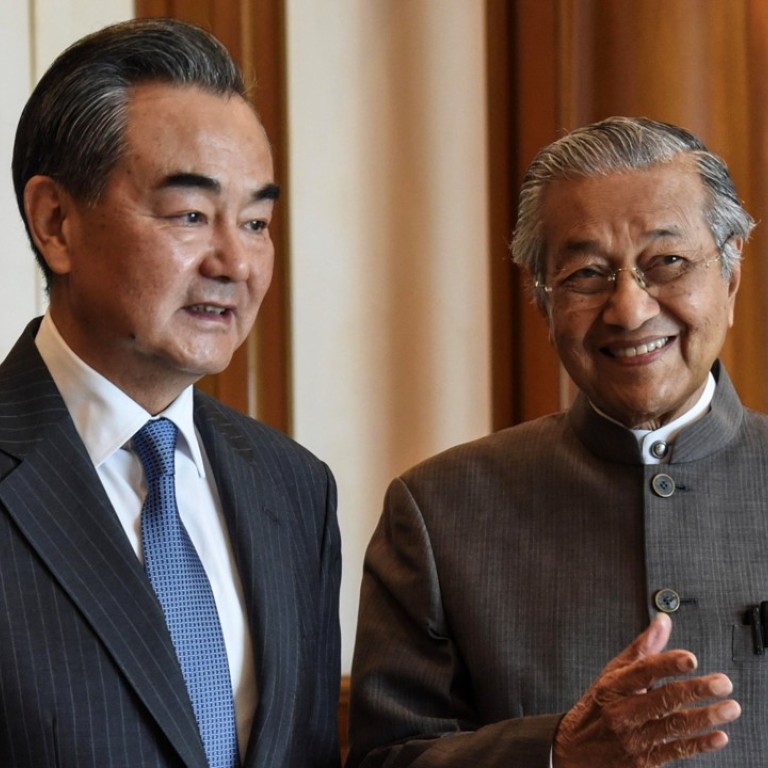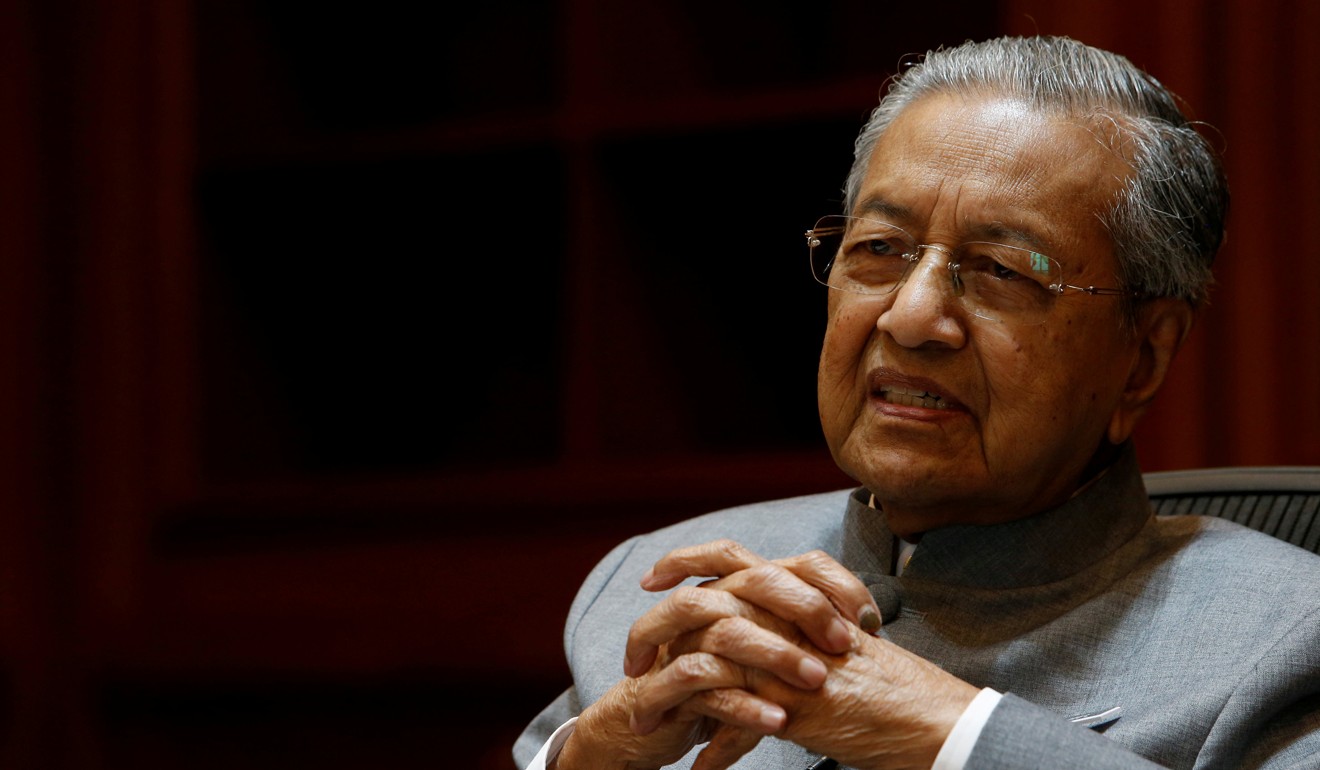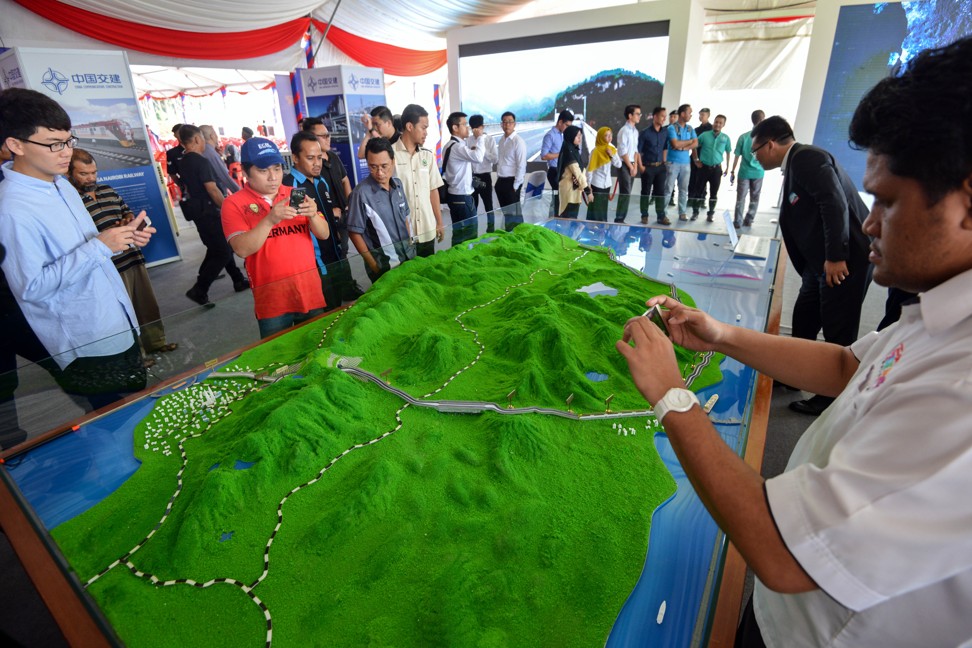
Can Malaysia’s Mahathir Mohamad achieve economic balance with China on upcoming visit?
Kuala Lumpur is keen to reduce its national debt, Beijing is looking for allies, and both want to remove uncertainty, observers say
Malaysian Prime Minister Mahathir Mohamad will be seeking greater balance in economic ties between China and Malaysia when he visits Beijing this week, while both sides will be keen to remove any uncertainty in their relationship, diplomats and observers said.
Mahathir is expected to arrive in China on Friday and stay until August 21. It will be his first visit since he returned to power in May, and comes as Beijing remains locked in a trade war with the United States, and eager to win support from and strengthen ties with its neighbours.
But the decision by the new leader to review China-backed investment and projects in Malaysia as well as his outspoken attitude on South China Sea disputes have unnerved Beijing.

A Malaysian official who is involved in the preparations for Mahathir’s visit said Kuala Lumpur was looking for more balance in its economic ties with Beijing, especially as much of its crippling national debt was owed to China.
The Southeast Asian country also wanted to lower the cost of the projects, and get Malaysian companies and workers more involved in them, said the official, who asked not to be named.
Mahathir Mohamad to be greeted like ‘old friend in Beijing despite suspension of projects
Mahathir has made reducing Malaysia’s US$250 billion national debt a priority. While the government has not said how much money it owes China, Beijing-led projects, including the US$20 billion East Coast Rail Link and two pipeline projects worth a combined US$2 billion, are believed to account for a sizeable portion of it.
Malaysian authorities are also looking into possible links between two China-backed gas pipeline projects and Malaysian businessman Jho Low, who is believed to be responsible for the theft of billions of US dollars from the scandal-ridden state fund 1Malaysia Development Berhad.
China’s stalled investments to top agenda when Malaysian envoy visits Beijing, observers say
Fahmi Fadzil, a member of parliament with Mahathir’s ruling coalition said scepticism and worry about Chinese investments ran deep in Malaysian society and had propelled the government to tackle the issue.
“There are a lot of concerns for the Malaysian business community, particularly Chinese-owned businesses,” Fahmi said.
“They want to see the benefits of these investments … in terms of financing and supply chain, that’s where [Malaysian] people want more participation.”
A Malaysian diplomat, who also requested anonymity, said that the intensifying economic and strategic rivalry between China and the US was a major concern for smaller Asian countries like Malaysia that fear being caught in the middle.
“It’s worrying to see the trade war and the South China Sea [disputes] being increasingly intertwined,” the person said. “It’s not the cold war but it’s something we haven’t seen.”
Malaysia has Jho Low’s yacht. Now it wants his US$35 million jet
In an interview with Associated Press published on Monday, Mahathir said he would seek to cancel China-backed projects like the gas pipelines and rail link along Peninsular Malaysia’s eastern coast, describing them as not viable.
The 93-year-old leader also cautioned against any further militarisation of the South China Sea, reiterating his call for warships not to be permanently stationed there.
Ngeow Chow Bing, deputy director of the Institute of China Studies at the University of Malaya, said that during his visit to China Mahathir would seek to hammer out the “strategic future of bilateral relations and regional order”.
That would include “security, economic, trade, political-diplomatic and geopolitical” issues as well as “China’s role in the future of Asean and Asia, and Malaysia’s role amid the US-China trade war and likely future intensification of the competitive aspect of the US-China relationship”, he said.
In June, Malaysia said it would designate the Luconia Shoals in the South China Sea – which it administers but are claimed by both Beijing and Taiwan – as a national park, in a move that is unlikely to please mainland China.
The shoals are located at the southern tip of the Spratly Islands, about 100km (62 miles) off the Sarawak coast of Borneo and inside the exclusive economic zone of Malaysia, but Beijing refers to them as its southernmost territory.
Malaysia to probe US$2 billion in payments made to Chinese pipeline firm under ousted ruler Najib Razak
Wu Shicun, president of the National Institute of South China Sea Studies, said Mahathir’s high-profile statements showed Malaysia was ready to be more vocal on South China Sea disputes, but unlikely to make any fundamental changes to its policy on the issue.
“China and Malaysia have a tacit understanding, so I believe Mahathir will not make any overly aggressive moves such as occupying the reef or conducting unilateral oil and gas exploration … at the cost of sacrificing overall China-Malaysia ties,” he said.


